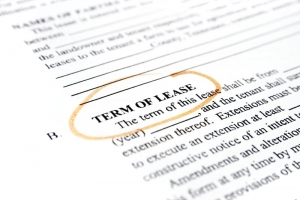Picture this – after a few years in your new veterinary clinic/hospital location, you have developed a solid culture with staff and patients that you truly enjoy.
Your loans are slowly but surely being repaid and you are building up an enviable client roster in the process. Your home and your children’s school are all within a three-mile radius of your clinic. Life is good, and improving. Then, out of the blue, you receive a notice that your lease is being terminated due to a redevelopment of the property. Can the landlord do this? What happens now?
What is a “Redevelopment” or “Demolition” Clause?
 The “redevelopment” or “demolition” clause is an increasingly common feature of veterinary office lease agreements, particularly in high-density, metropolitan real estate markets. This clause gives your landlord the right to terminate your lease if they decide to demolish, renovate, or redevelop the building or center you are practicing in. Often the definitions of “redevelop”, “demolish”, or “renovate” in the lease are highly ambiguous.
The “redevelopment” or “demolition” clause is an increasingly common feature of veterinary office lease agreements, particularly in high-density, metropolitan real estate markets. This clause gives your landlord the right to terminate your lease if they decide to demolish, renovate, or redevelop the building or center you are practicing in. Often the definitions of “redevelop”, “demolish”, or “renovate” in the lease are highly ambiguous.
The particulars of this redevelopment or demolition – the who, what, when, why and where – will invariably differ from lease to lease and from landlord to landlord.
For example, a given veterinary office lease might allow the landlord to terminate your tenancy if they decide to build a condominium building on the land. Another lease might permit the landlord to permanently relocate you to another part of the property, or to another property altogether, if renovations are to be carried out.
The struggle is particularly relevant to veterinarians, who invest heavily in leasehold improvements and can’t simply pick up and relocate without considerable expense. Sound familiar? That’s because the average veterinarian spends hundreds of thousands of dollars constructing an animal hospital/clinic. As such, the “redevelopment/demolition” clause could be highly problematic if it is not negotiated with your investment and best interests in mind.
How this Clause Impacts Veterinary Tenants
So maybe your clinic is in a building that could use a facelift. What’s wrong with a little rejuvenation on the landlord’s dime?
Lease Termination
The redevelopment clause may enable your landlord to evict you from your clinic with little or no notice. When this nightmarish scenario comes to life, it leaves veterinarians scrambling to find new homes for their businesses with very little transition time. It will also require you to construct yet another veterinary hospital/clinic from scratch. Remember the time and money it took to find, secure and build the location from which you are being evicted? It’s back to square one again, only it’s a potentially disastrous proposition this time, given that many veterinarians will not yet have repaid the investment required to build the original practice.
If you are left without a clinic to practice from, you can also expect heavy income losses and significant attrition, as clients migrate to clinics that have their doors open and can reliably meet the immediate needs of their beloved pets.
Practice Relocation
While relocation might appear as a less nefarious alternative, it may in fact be riskier than lease termination. Depending on how the relocation provision in the lease has been drafted, there may be very little certainty as to what the new space will offer in terms of square footage, visibility, accessibility, or exposure.
Another very significant bone of contention tends to arise where practice buildout costs are concerned. The lease states that the landlord will cover “relocation expenses”, but what does that include, specifically? Is it just furniture relocation? What about your custom, built-in cabinetry, kennels, and exam tables? Who will pay to disconnect and reinstall your costly veterinary equipment? Who will perform the move and when? Who pays for the move, you or your landlord? What about disruption to your business and potential clinic down time? And so the logistical horrors begin, with few guarantees as to how the new space will compare to the one that you originally contracted for, and have so heavily invested in.
Options at Lease Negotiation Time
In the competitive landscape of veterinary office leasing, simply refusing to sign a lease with a “redevelopment/demolition” clause may prove to be a regrettable decision, particularly when the location is otherwise desirable.
The good news is that there is much negotiation work that can be done to add long-term stability and visibility back into the equation. With a carefully structured negotiation plan, your professional veterinary office lease negotiator should be able to amend the redevelopment clause in some of the following critical ways:
- Blackout – In leases where the presence of a redevelopment clause is non-negotiable, our greatest tool is the blackout period. Introducing a blackout period ensures that the landlord cannot exercise its redevelopment right until a certain amount of time has passed – often, this can be as much as ten years. At renewal time, a savvy negotiator will attempt to lengthen the blackout period even further, thereby providing the tenant with more secured time in its location.
- Notice Period – Often, the lease will permit the landlord to provide little or no notice to you before carrying out the redevelopment or demolition plans. This is problematic as it increases the likelihood of clinic downtime as you struggle to find a new home for your business. The more advance notice you can secure from the landlord, the more likely it is that you will be able to find, design, and build out a new clinic location that meets your requirements. Notice gives you – the veterinary tenant – the requisite time to plan and ensure that you don’t suddenly find yourself without a location to practice in.
- Payment for Unamortized Improvements – Where the redevelopment right is exercised by a landlord before the original construction costs have been fully amortized, the landlord should compensate the tenant for the unamortized value of its leasehold improvements. Payment in this regard signals recognition by the landlord that there are losses that will be sustained as a result of its redevelopment decision, and will lessen the financial hardship faced by a veterinarian who has to rebuild their clinic.
- Clinic Relocation Costs – Where the lease permits for relocation of your veterinary clinic to another suite or to another property owned by the landlord, language in the lease should be explicit regarding the landlord’s obligation to pay for all costs associated with the move, from construction of the new space to new marketing materials and everything in between. Relocation language should also describe, in no uncertain terms, what you will accept in a new space as far as square footage, frontage, accessibility, etc. are concerned.
- Tenant’s Termination Right – Whether the lease agreement is being terminated or the tenancy relocated, it is to your advantage to have negotiated in your right to exit the lease. For example, if you identify a new location, you should have the right to terminate your lease agreement before the landlord’s notice period has expired. Similarly, if you don’t feel that the relocation space is comparable to your existing veterinary clinic, you should have the right to terminate the lease. A lease termination right puts the power back into your hands.
Conclusion
There is little meaningful influence a veterinary tenant will be able to exert once the landlord’s redevelopment plans are in play. The surest and most effective way to protect your investment against the redevelopment/demolition clause is to negotiate its finer points in your lease before you become a tenant – namely, at the lease negotiation stage.
Author: Sabrina Ladak, J.D., Lawyer and Lease Negotiator at Cirrus Consulting Group
Questions about your veterinary office lease?
Schedule your personalized consultation with a lease expert today!




